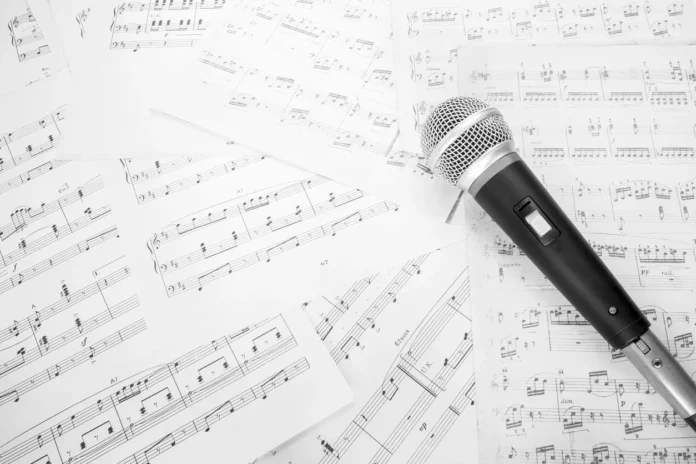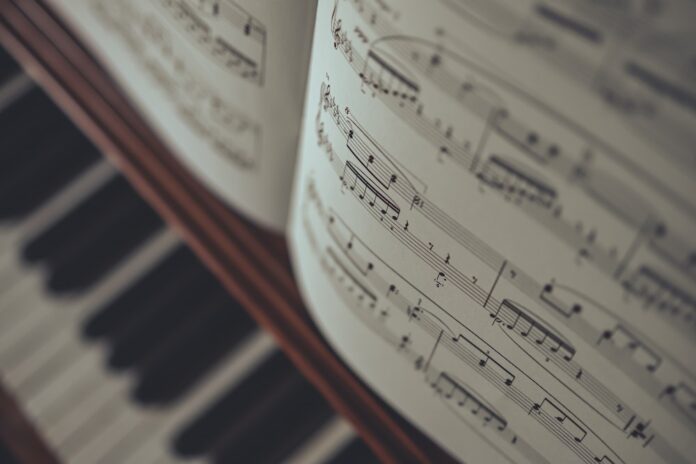
If you’re serious about singing, diversifying your go-to pieces should be a top priority for you. It’s easy to gravitate toward the same composers and genres, but doing so can make it more difficult for you to sell yourself as a competent and versatile performer.
Singers should gradually build a repertoire of several pieces they can pick from for a variety of situations, from auditions to performances and everything in between.
Whether you are singing for pleasure, studying music, or preparing for a career as a performer, these tips can help you build the perfect sheet music repertoire.
Important Genres for Vocalists

Good singers know their music history and choose pieces from composers that span across centuries. When building your personal collection, choose at least two songs from each of these major genres. Also, select not just art songs (short songs for vocalists, usually with piano accompaniment) but opera arias as well, as these can be more technically demanding and musically rewarding.
Classical Literature
Classical music is often an all-encompassing term that covers virtually all music written before the mid-twentieth century. For vocalists, the essential songs that have stood the test of time typically come from one of four major time periods: the Renaissance, the Baroque period, the Classical period, and the Romantic period.
Renaissance vocal music tends to be the most straightforward of this genre, with simple steady rhythms. Most songs create a blended, singular sound from the vocal lines and simple accompaniment. Claudio Monteverdi is one of the most prominent vocal composers of this age, well known for his madrigals and his influence on the development of the opera genre.
Music from the Baroque period is much more dramatic than its predecessors, with plenty of vocal trills and melismas, a technique that involves stretching out one syllable of a lyric over several notes. Henry Purcell and Alessandro Scarlatti wrote numerous vocal pieces during this era that are still considered essential for vocalists today.
Technically, the Classical period only covers music written between 1730 and 1820, yet features some of the most prolific and celebrated musicians of all time. At least a few arias from the operas of Wolfgang Amadeus Mozart, as well as oratorios by George Frederic Handel, are essential vocal selections from this time period.
Finally, the Romantic period brought an emotional shift in music composition and is responsible for some of the most beloved art songs for vocalists. Franz Schubert and Robert Schumann are responsible for many of the pieces that novice and experienced singers alike consider staples in their sheet music repertoire.
Jazz Standards
While instrumental jazz certainly had a major impact on music and culture, vocal jazz is also considered an integral part of the development of modern styles and art forms. While jazz has a long, rich history and encompasses a broad period of time, the songs composed between 1920 and 1950 are considered vocal standards that are well-known, well-studied, and well-loved generations later. Jazz singing is vocally demanding and quite different from the classical style, making it an important addition to your music portfolio.
Contemporary Vocal Songs
Starting in the early 1900s, music composition became more experimental, with ever-changing time signatures, dissonant notes, and chord progressions that don’t always resolve the way you’d expect. Songs by contemporary writers, such as Charles Edward Ives and Leonard Bernstein, add complexity and interest to any repertoire and truly challenge a vocalist’s sense of timing and pitch.
Musical Theater and Showtunes
This genre of music is just plain fun for singers of all skill levels, but it also provides the opportunity to showcase your strengths. In this category, singers get the chance to show off their vocal range, power, enunciation, and overall emotion and stage presence. Here, the options and styles are virtually limitless and span decades, so singers can select from a variety of pieces that speak to their passions and interests.
4 Tips for Choosing the Right Sheet Music

Selecting the appropriate songs for your personal vocal collection can be daunting, with thousands of options to choose from. While you need pieces that suit your goals and tastes, it’s also important to challenge yourself and step outside your comfort zone so you can progress as a musician. These guidelines can help you make better choices for a well-rounded repertoire.
1. Consider Your Vocal Range
Your vocal range is a living thing that can shift, stretch, or shrink over time. Learning which category you fall into, such as baritone, tenor, or mezzo-soprano, can help guide you toward go-to pieces that truly highlight your range and showcase your strengths. Even so, modern technology makes it easy to instantly transpose a piece of sheet music into virtually any key that works well for you. If you find something irresistible that’s outside of your natural range, transposition can be an easy fix.
2. Opt for Multiple Languages
Diversity is essential when building a collection of performance and audition selections. This is true not just when it comes to genres and styles, but languages as well. Aim to include at least three different options. This should require little effort, as many “classical” standards are written in German, French, Latin, or Italian.

3. Find What Speaks to You
Sometimes, a piece of music sticks with you, whether it’s powerful lyrics, a soaring melody, or simply an overall impression that moves you. When you connect deeply with the music you sing, it becomes evident in your presentation. More importantly, it makes practice less of a drudgery and more of a pleasure.
4. Listen to the Professionals
One of the best ways to build a successful song collection is to simply listen to high-quality vocal performances from each major era and genre. While it’s important that you make each piece your own when you perform, studying the delivery of celebrated musicians can help you find new interests while honing your skills. Frequent, active listening is integral for all singers.
Creating a diverse arrangement of sheet music can help prepare you for every musical possibility that comes your way. A great repertoire can open doors for you as a performer and overall musician, so check out musicnotes.com today.







